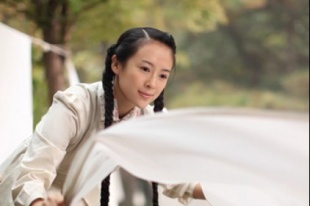Sharing secrets of success


The movie's director, Li, a best-selling novelist, who graduated from New York University, is known for writing youth-themed tales, such as Don't Cry at 17 and Heaven Eternal, Earth Everlasting.
While the former was made into a top-rated 10-episode television drama, starring Hao Lei and Li Chen in 1997, the latter was made into a film which was shortlisted for the 22nd Tokyo International Film Festival's competition sector in 2009.
The latest film, which had a budget of 100 million yuan ($15.1 million), is Li's second directorial feature. And, to prepare for the film, Li collected more than 110,000 photos over a 14-month period.
Also, the crew went to Southwest China's Yunnan province to build a 10,000-square-meter film set to bring to life the National Southwest Associated University, the provisional, wartime college co-founded by Peking University, Tsinghua University and Nankai University from 1938 to 1946.
Meanwhile, Zhang, who is yet to watch the completed film, says she can't wait for it.
"As parts of the movie were shot around five years ago. I believe the director will re-edit most of the scenes," she says.
Zhang, who shot to fame with Zhang Yimou's The Road Home (1999), first grabbed attention in the West for Ang Lee's Oscar-winning Crouching Tiger, Hidden Dragon (2000).
Later, in 2004, she received acclaim for the martial arts thriller House of Flying Daggers, followed by more praise for Hong Kong director Wong Kar-wai's 2046, which won her the best actress honor at the Hong Kong Film Awards in 2005.
Her rise was meteoric. And, at her young age when most young Chinese actresses were still seeking major roles in domestic movies, Zhang was already working in Hollywood.
Her role of a poor girl-turned-celebrated geisha in Rob Marshall's 2005 epic drama Memoirs of a Geisha made her the first Chinese to earn a best actress nomination at the Golden Globes.





































